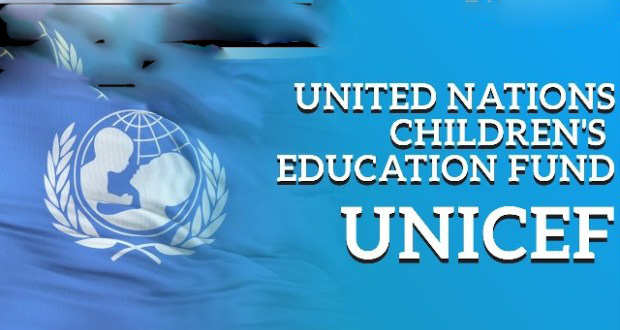By Asmau Ahmad
The United Nations Children’s Fund (UNICEF) says Nigeria’s 17 million undernourished children have placed the country in the top position of Africa’s malnutrition burden.
A UNICEF report, titled “Fed to Fail? The Crisis of Children’s Diets in Early Life,” released in Abuja, said that the country also held the second position in the global malnutrition burden.
The report was released ahead of the 2021 United Nations Food Systems Summit scheduled to take place during the UN General Assembly in New York, on September 23.
According to the report, one in three children in Nigeria is stunted and one in 10 children is wasted, setting the country off-track to achieve Sustainable Development Goals (SDGs) 2; “Zero Hunger” by 2030.
“In an analysis of 91 countries, including Nigeria, half of the children aged six to 23 months globally, are not being fed the minimum recommended number of meals a day.
“Two-thirds, do not consume the minimum number of food groups they need to thrive. In Nigeria, one out of every three children are stunted and one out of every 10 children is wasted.
“As a result, close to 17 million Nigerian children are undernourished (stunted and/or wasted), giving Nigeria the highest-burden of malnutrition in Africa and the second highest in the world.
“Nigeria is off-track to achieve SDG2: Zero Hunger by 2030. To change this trajectory, the time to act is now to reimagine not just food, but health and social protection systems,” the report advised.
The UNICEF report said that children under the age of two were most vulnerable to all forms of malnutrition such as stunting, wasting, micronutrient deficiencies, overweight and obesity.
It said that this was a result of poor diets due to children’s greater need for essential nutrients per kilogram of body weight than at any other time in their life.
“Children carry the scars of poor diets and feeding practices for life.
“An insufficient intake of nutrients found to support growth at an early age puts children at risk of poor brain development, weak learning, low immunity, increased infections, and potentially, death.
“Globally, UNICEF estimates that more than half of children under the age of five with wasting which is about 23 per cent of children are younger than two years.
“The prevalence of stunting among children increases rapidly between six months and two years, as diet’s fail to keep pace with their growing nutritional needs.
The report said that the “2018 Nigeria Demographic and Health Survey” among children aged six to 23 months, estimates that only 23 per cent have the minimum necessary dietary diversity.
According to the report, the survey also estimates that only 42 per cent of children in this age bracket have minimum adequate meal frequency.
The report noted Rushnan Murtaza, the UNICEF Nigeria Deputy Representative, as saying that the food crisis in Nigeria had reached a crucial tipping point.
Murtaza said that only by joining hands with partners, government, and relevant stakeholders, could the Nigerian food system be transformed.
He said that when the system is transformed, better provision and access to diverse, nutritious, safe, and affordable diets for every Nigerian child would be achieved.
She insisted that drug hawkers are merchants of death and therefore called on Nigerians to shun them and support NAFDAC in eliminating drug hawking.
The director general further called on enlightened Nigerians to help in restraining the uneducated and unenlightened ones from dabbling in drug business as it is a no -go area for them.
Prof. Adeyeye said: “If the drugs were efficacious originally, by the time they are being carried about under rain, heat of the sun and other poor storage conditions, they would lost their potency, efficacy and safety such that over time they become outright poison which can damage vital organs of the body such as liver, kidney and ultimately lead to some terminal illnesses and even death.”
She, therefore, warned drug hawkers to desist from the business because, it attracts jail term of not less than two years.
“Nigerians should, therefore, join hands and shun them because if nobody patronises them, they will fizzle out. If there is no demand, there will be no market,” the NAFDAC DG stressed.




